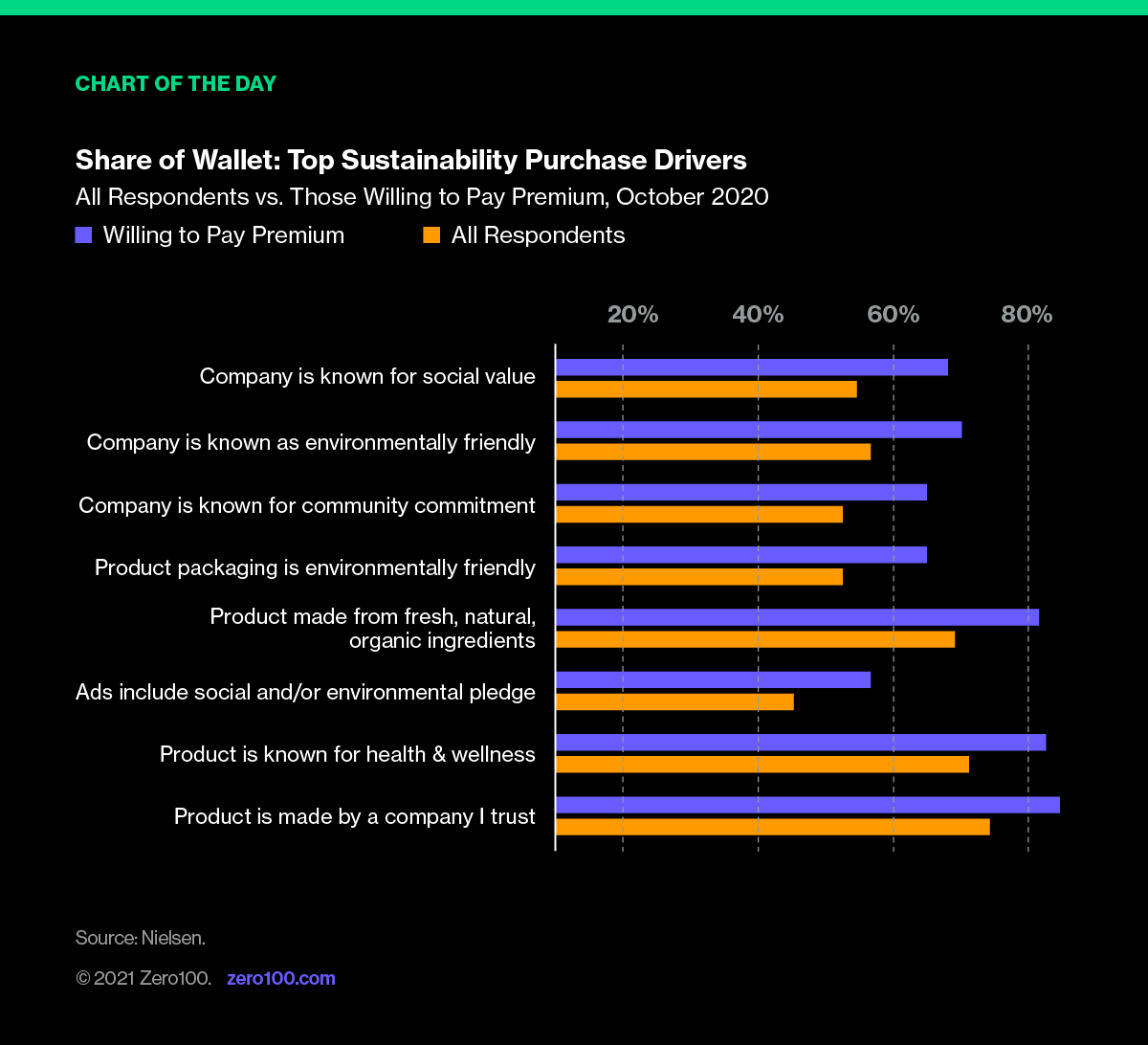
Blockchain: Shopping of a Zero Carbon Future
Governments aren’t solving climate change. New consumer attitude data says we’re better off looking to baby-boomers shopping for groceries with super-detailed supply chain carbon info – blockchain is the key.
COP26 feels like a come down from the glow I felt following the Paris Accords back in 2015 when it seemed we might really get this done together. Not only is Greta Thunberg out there saying “blah, blah, blah”, justifiably mocking the lack of action being shown by world leaders, but some of the biggest players aren't even playing. The historian in me keeps flashing back to the League of Nations and its promise to make World War I the “war to end all wars”.
Governments, particularly democratically elected ones, and even worse, when they try to work in unison, are not suited to the task of arresting carbon emissions growth and global warming. Maybe we should look to the people instead.
Start in the Supermarket with Baby Boomers
A July 2021 study of 10,000 consumers across 17 countries by Simon Kucher & Partners, a German strategy & marketing consulting firm, shows how powerful the everyday shopper could be in the quest to stop climate change, precisely where to start, and how detailed supply chain information can be the catalyst. Four findings stood out:
- 34% of consumers will pay a premium for “sustainable” products,
- 25% is the average premium they will pay,
- Boomers and Gen X are more likely to pay a premium (33%) than are millennials (28%),
- Consumer Goods (40%) are the most likely category to earn this premium (compared to automotive, construction/home and energy/utilities - 31% each)

Big spenders, shopping for stuff they buy every week, are ready to pay up for sustainable products while governments wrangle endlessly over fuel efficiency standards, carbon taxes and regulations to minimal effect.
What if we could give these shoppers exact carbon footprint data for each item they buy, on the exact day they buy it, including its last mile journey to the customer's hand? And, what if every shopping trip (in store or online) kept a running tally of the total carbon footprint in your basket, letting you trade up for a bit of carbon-heavy beef by compensating with some low-carbon laundry detergent eco-sheets? And finally, what if this enormous trove of data were feeding constantly into simulators tuned to optimize for revenue, carbon, and customer net promoter score in a giant weekly game of feeding families while driving down carbon – a game won both by brands and shoppers?
This is all technologically possible now and is an epic jump beyond the current state of the art which is limited to mass printed labels touting brand level sustainability badges from NGOs and pointing eager consumers to corporate ESG websites for “more information”. Right now, the 34% identified in this study are limited to buying brands they trust, based on sweeping marketing messages. Better than nothing, but just barely.
We can do much better.
Blockchain Carbon Accounting
One of the more compelling digitization-of-supply-chain stories I've seen is Nestle's use of permissioned blockchain to give shoppers a detailed chain-of-custody story about the specific grower, the specific roaster, and the entire journey of each bag of coffee to the point of sale. What's cool about this example is its trail of truth accessible via a QR code on the package, that lets the consumer understand and care about where this specific bag of coffee comes from. It helps justify a price premium that lets Nestle pay the grower more and adds value to all parties with a dose of respect for the supply chain itself.
Carbon accounting is messy because of the connectedness of supply chains and the optionality of energy, material, and transport between planet and shopper. Aggregate or average scores are hard to get excited about, but with blockchain and the prospect of item/location specific carbon footprints we may have something far more compelling to offer. The good news is that most of the meaningful work piloting blockchain is happening in consumer products and retail already including not only Nestle but Walmart, PVH, Kohl's, Macy's, H&M, Nike, Carrerfour, Unilever and Tyson Foods.
Blockchain isn't exactly ready for primetime yet, but if supply chain pioneers can use it to master instance-level transparency and optimization maybe carbon-conscious, baby boomers buying laundry detergent will save us all.
Critical Reading
THE NEW YORK TIMES
Searching for Hidden Meaning in Climate Jargon
Commentary: Ultimate terminology primer for the language of sustainability, cover the history, evolution, and controversy surrounding thirteen key terms.
#COP26 #sustainability #ESG
NATURE
Young People's Climate Anxiety Revealed in Landmark Survey
Commentary: So why is this time different? In the largest study its kind, 60% of 16-to-25-year-olds report they felt ‘very' or ‘extremely' worried about climate change.
#COP26 #genZ #survey
FORBES
COP26: The Sustainability Heroes in The Race to Net Zero
Commentary: Examples of sustainability practices including those from Grosvernor, P&G, World Economic Forum, etc. help move the conversation from problems to solutions.
#COP26 #sustainability #casestudies